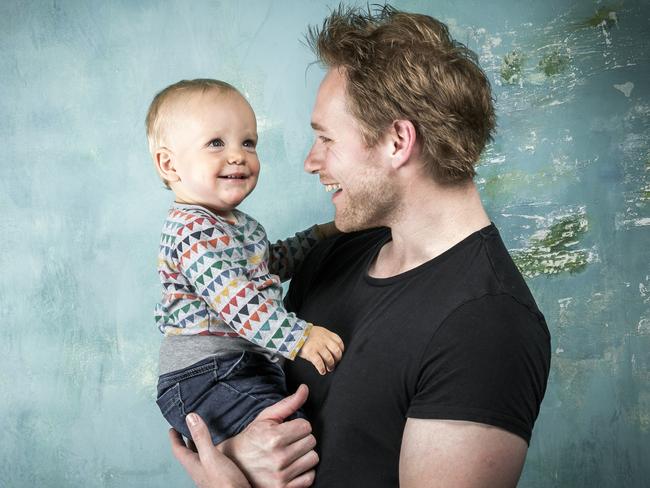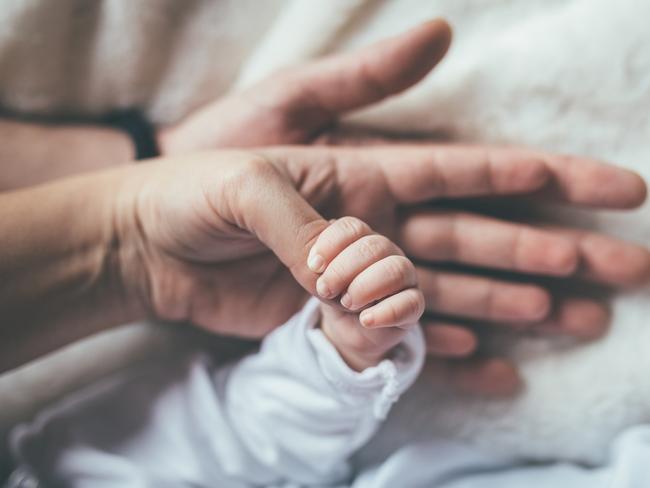The Science of Fatherhood: Why dads are an important part of their child’s life
THERE is plenty of evidence suggesting dads who are actively involved from the birth of their children stay actively involved in the long term. And an involved father leads to happier, healthier and smarter kids, writes Dr Justin Coulson.
Parenting
Don't miss out on the headlines from Parenting. Followed categories will be added to My News.
IT’S Father’s Day tomorrow and, as always, it reminds me how important dads are to their children.
I know you’ve heard it before but you might want to know the facts. Why are dads so important? How do experts come to that conclusion? What is the proof? Or is it just anecdotal, feel-good lip service?
I get it. Sometimes the warm, fuzzy anecdotes just aren’t going to cut it — we want the cold, hard facts because sometimes it feels as if being a father is just a fancy title for being the guy who acts as the money dispenser.
So for Father’s Day this year, I give to you: The Science of Fatherhood.
Fatherhood begins at conception when dads pass parts of their genetic coding on to their kids. Brown eyes or blue? Tall or short? Male or female? We know the dad’s DNA had a say in at least some of those outcomes.

But there is also the science of epigenetics, a fancy word to describe how genes are altered because of lifestyle choices, the environment or other outside factors.
Dads might not be aware that the way they are living their lives at the moment of their child’s conception will have an effect on their child’s DNA.
The science shows that drinking alcohol, making poor dietary choices and being highly stressed during conception can lead to negative outcomes for the pregnancy and have lifelong impacts on children.
These negative impacts include alcohol abuse, skeletal defects and high blood sugar. On the plus side, being physically healthy, mentally strong and happy can lead to positive outcomes for the baby throughout her life.
That’s because a father’s lifestyle choices are reflected in the molecules that control gene function, and he can pass that on.
Most fathers are now on hand during the labour and delivery of their children. Studies indicate that fathers who are involved in the delivery develop early relationships with their babies.
This leads to a strong early attachment. And plenty of evidence suggests dads who are actively involved at this early stage stay actively involved in the long term. And an involved dad means better outcomes for kids.
MORE FROM DR JUSTIN COULSON
WHY BEING A GOOD PARENT JUST TAKES PRACTICE
MOTHER ASKS HOW TO HELP HER CHILDREN AFTER DAD ATTEMPTS SUICIDE
Dads may sometimes feel unnecessary or extraneous when their kids are babies. This is a time when mum is much more important — she’s often the main source of food and comfort.
Sometimes dads might feel it’s a waste of time or energy to try to engage with a baby that won’t even remember (and clearly prefers mum).
But that isn’t the whole story. In fact, many emotional, social and behavioural benefits are linked to a dad who is involved from early infancy.
Children whose dads played an active role from birth demonstrated higher cognitive scores as toddlers. In other words, lots of baby playtime with dad might make your kids smarter.
When babies become toddlers, the effect is even bigger. Researchers found that dads who are involved in everyday activities with their kids, such as eating dinner together or playing in the yard, were more engaged with their children.
This is important because kids with involved dads are smarter (they have higher IQs) and more prosperous. They also have a better self-esteem and grow up with more self-control, confidence and self-worth.

At about the age of six, a big change happens in boys.
Steve Biddulph in his book Raising Boys describes it as “a sudden ‘switching on’ of boys masculinity” and, from an emotional point of view, dad is suddenly much more important. From six until about the age of 14, boys are all about dads, and it’s a major opportunity for dads to positively influence their sons.
This is the time when dads and sons can build a really strong relationship by spending time together and enjoying each other’s company.
Girls who have engaged dads excel in the same way as boys (and vice versa). But a father’s role has an uptick in importance in his daughter’s life when she reaches puberty.
Many emotional, social and behavioural benefits are linked to a dad who is involved from early infancy.
Studies show that when a dad is cold or disengaged, his teen daughter is much more likely to engage in risky sexual behaviours, such as casual or unprotected sex, or promiscuity. Girls who have developed a strong relationship with their dads take fewer sexual risks.
Danielle DelPriore, a researcher who studied how fathers impact the sex lives of their teen daughters, said: “Dads do not have to be perfect … making a genuine effort to be there for their daughters could make a big difference.”
Today’s dads are more engaged with their kids. There has been a shift in how fathers view their roles in the family, and today’s dad sees himself as equally important in raising children as the mother.
This is great news! Without a doubt, kids need their dads. Science has proven it.
So this Father’s Day remember, you make your kids smarter, happier and healthier. That’s a gift we can get behind.
